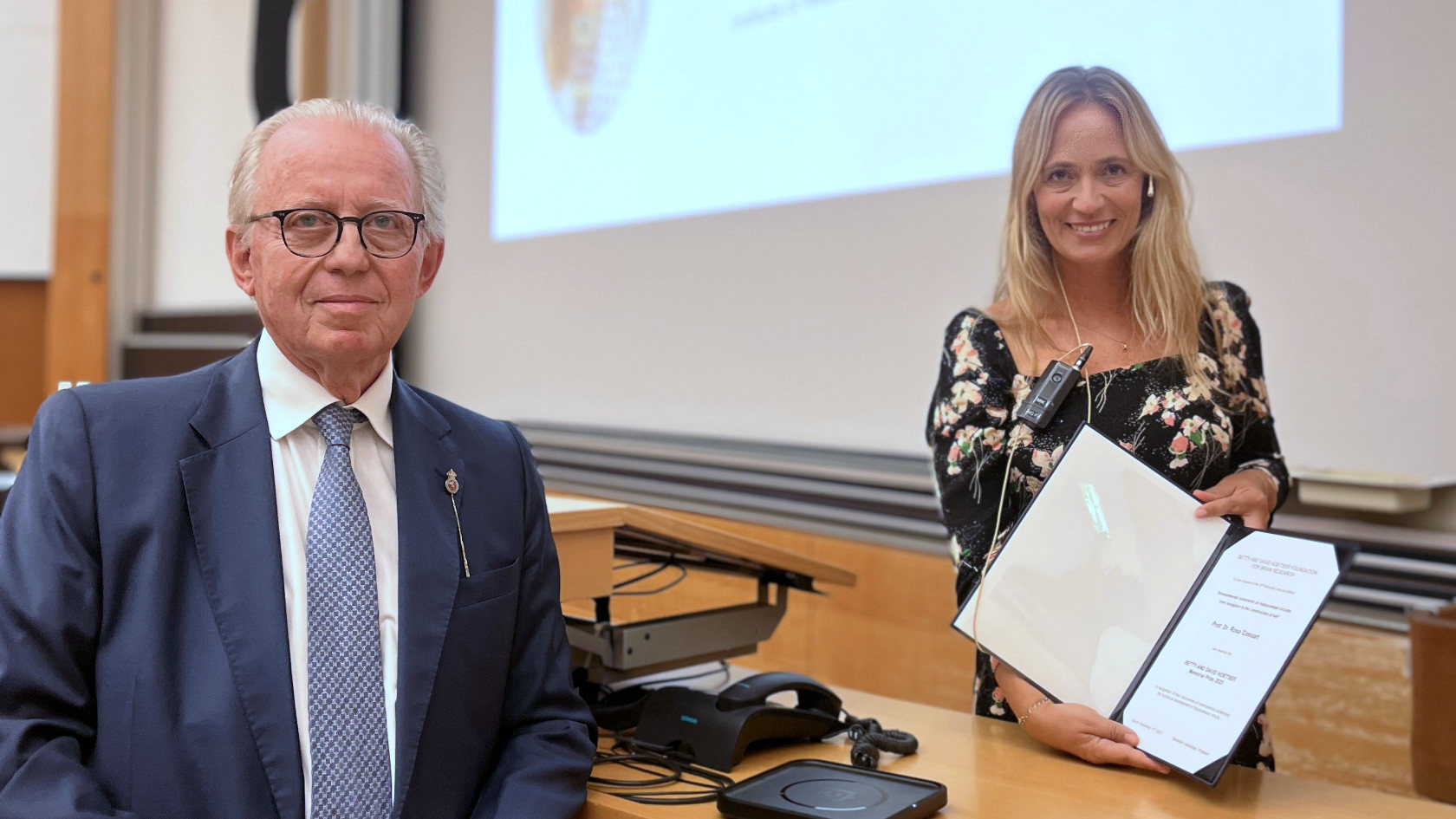Encoding Experiences in the Brain

Understanding how the brain is structured and how it establishes its intricate connections to function properly may be the key to enabling brain repair in cases of various brain diseases, such as autism and Alzheimer’s disease.
In recognition of her pioneering work on brain development and functional connectivity, Prof. Rosa Cossart was presented with the 2025 Award for Brain Research by the Betty and David Koetser Foundation. The award was presented at the Zurich Neuroscience Center’s (ZNZ) annual symposium on 11 September 2025.
Focused on the hippocampus
In her work, Rosa Cossart has made seminal discoveries regarding brain development and its impact on adult brain function. Her primary interest lies in the hippocampus, a brain region that plays a fundamental role in certain forms of learning and memory. The hippocampus is necessary for experiences to eventually be stored in long-term memory.
Proper hippocampal function is disrupted in various diseases, including neurodevelopmental diseases such as autism and neurodegenerative diseases such as Alzheimer’s disease. Rosa Cossart first described hub cells, which are inhibitory nerve cells with exceptional connectivity that can synchronize a large number of neurons during development. Furthermore, her research has revealed the functional building blocks of networks of hippocampal neurons that are interconnected to encode experiences for long-term storage as memories.
Possible future therapeutic interventions
Rosa Cossart discovered important principles of brain development and functional circuit formation. Notably, her research on animal models of human disease – including autism models – demonstrated how the formation and function of the hippocampus is affected. This work suggests potential therapeutic intervention strategies for treating human disease.
For her outstanding discoveries of the mechanisms underlying the functional development of brain circuits, Rosa Cossart received the 2025 Koetser Award.